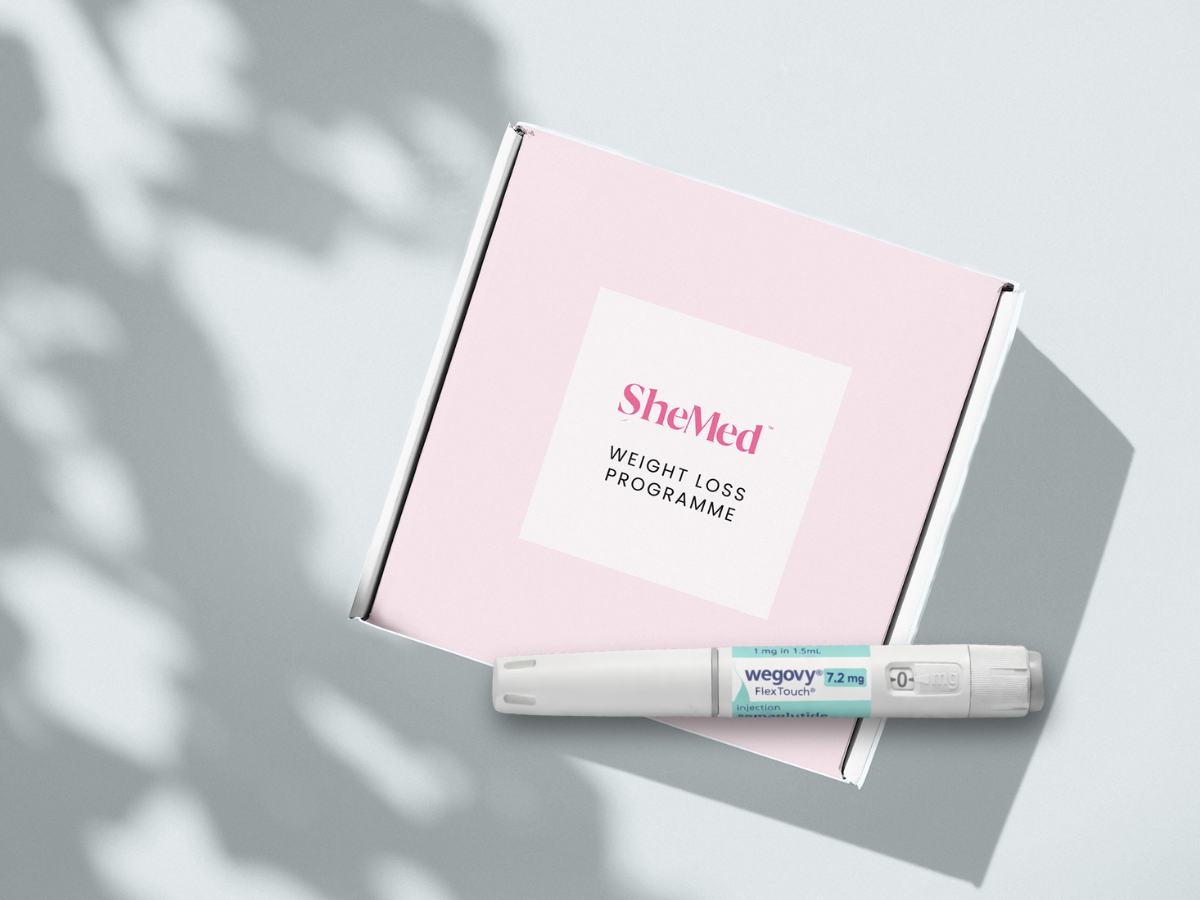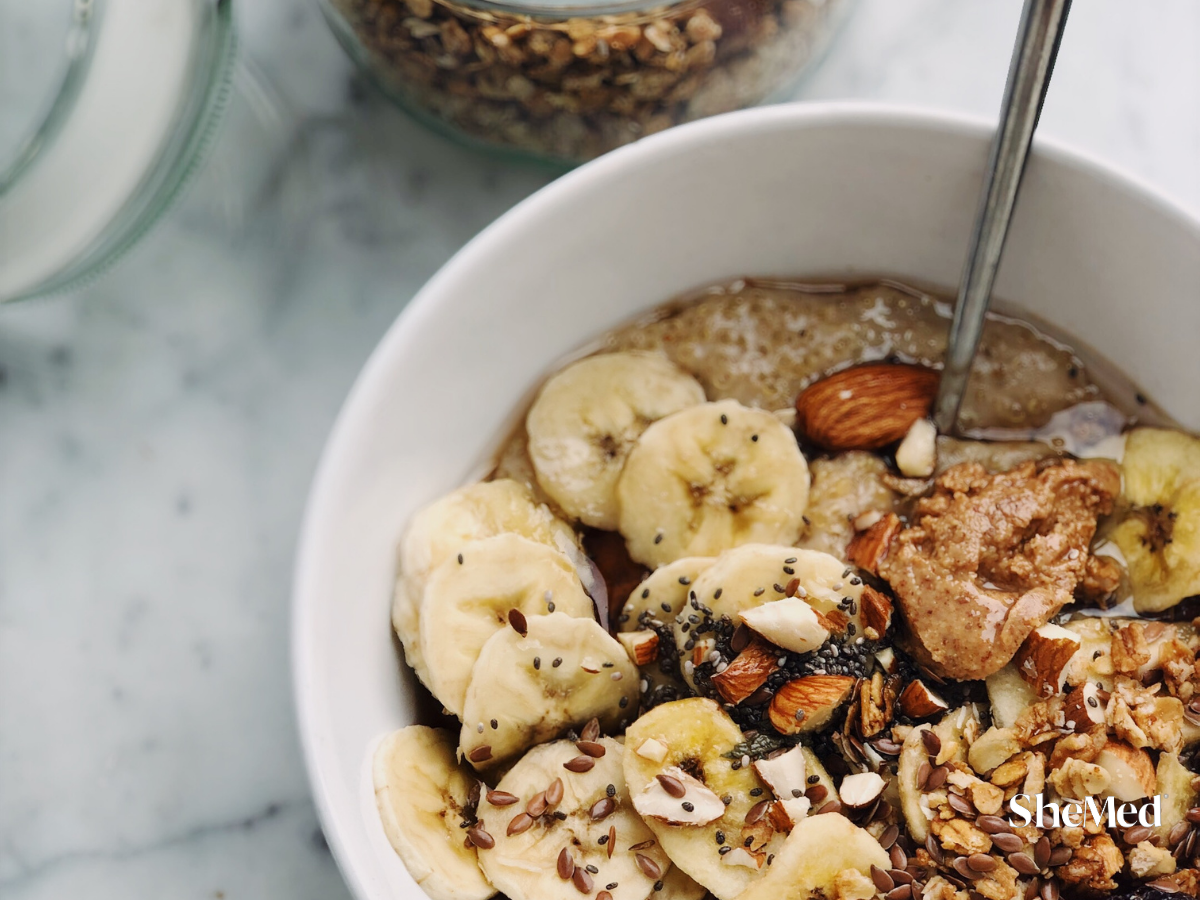
For many people, the day does not truly begin until that first sip of coffee. It is more than caffeine; it is a ritual, a comfort, and sometimes even an emotional anchor that sets the tone for the day.
If you are starting or continuing treatment with Wegovy (semaglutide), you may find yourself asking an important but often overlooked question: Can I still enjoy my coffee before my weekly injection? This question is completely understandable.
Wegovy has transformed weight management for countless people, but it can come with side effects such as nausea, stomach upset, or changes in digestion. Coffee, while beloved, is also known for its own effects on the stomach, hydration, and energy levels.
When the two overlap, it is natural to wonder if you might be setting yourself up for extra discomfort or if you are unknowingly affecting your medication’s impact.
Here is the reassuring part: drinking coffee before your Wegovy shot is generally safe. There is no direct interaction between caffeine and semaglutide. But “safe” does not always mean “comfortable.” Factors such as timing, portion size, your caffeine sensitivity, and even whether you drink coffee on an empty stomach can all influence how you feel before and after your injection.
The Pharmacological Collision: Caffeine, Acid, and Gastric Delay
Coffee and caffeine consumption are nearly ubiquitous in daily life, yet when combined with pharmacotherapy such as Wegovy (semaglutide), careful consideration is warranted due to overlapping physiological effects that can exacerbate gastrointestinal (GI) symptoms.
The Coffee Mechanism: Three Key Clinical Effects of Caffeine
- Stimulant Effects: Caffeine acts as a central nervous system stimulant, increasing heart rate and promoting alertness. However, these stimulant effects can be perceived as amplified in patients starting potent medications such as Wegovy, which already impose physiological stress. Heightened anxiety, palpitations, and nervousness are not uncommon, sometimes complicating the patient’s initial adjustment period to therapy.
- Gastric Irritant: Caffeine and other coffee compounds uniquely stimulate gastric acid secretion through multiple pathways. Recent research identifies activation of bitter taste receptors (TAS2Rs) on gastric parietal cells, which trigger increased gastrin release and hydrochloric acid production. This heightened gastric acid output can irritate the stomach lining and, combined with caffeine’s relaxing effect on the lower oesophageal sphincter, facilitates acid reflux: a key driver of gastroesophageal reflux disease (GERD) and heartburn.
- Diuretic Action: Caffeine also acts as a mild diuretic by increasing renal blood flow and inhibiting sodium reabsorption. This diuretic effect can promote fluid loss, increasing the risk of dehydration if not balanced with adequate hydration, a concern intensified in patients experiencing Wegovy-triggered nausea, vomiting, or diarrhoea.
The Semaglutide Effect: Delayed Gastric Emptying
Wegovy significantly delays gastric emptying, slowing the transit of food and liquids from the stomach to the intestines. This prolongs gastric distension, augmenting satiety but also potentially intensifying gastrointestinal discomfort.
The Overlap—the Primary Risk
When increased gastric acid production from coffee intake converges with the delayed gastric emptying caused by semaglutide, patients face a compounded risk of gastrointestinal distress, manifesting as nausea, acid reflux, and heartburn. The slowed clearance of acid and gastric contents exacerbates mucosal irritation and symptom severity, frequently reported during the early stages of Wegovy treatment.
Managing Caffeine Intake on Injection Day (Addressing the User Query)
Navigating caffeine consumption on the day of a Wegovy (semaglutide) injection is a common concern among patients starting this transformative weight loss therapy. Understanding the interplay between caffeine and Wegovy can empower users to optimise their experience while minimising discomfort.
The Shot-Time Myth: No Clinical Evidence of Immediate Interference
Contrary to popular belief, there is no clinical evidence that consuming caffeine immediately before or during the Tmax (peak absorption time) of the subcutaneous semaglutide injection causes adverse effects or interferes with the drug’s efficacy.
Semaglutide’s pharmacokinetics operate on a longer timescale, with peak plasma levels maintained over days. Therefore, caffeine intake does not impact the medication’s initial absorption or therapeutic action. Patients can consume coffee around the time of injection without fear of reducing efficacy.

The Post-Injection Side Effect Window: Caffeine Moderation Is Key
Most bowel and gastrointestinal side effects, such as nausea and vomiting, peak within 24 to 48 hours after the injection. During this window, reducing caffeine intake can help mitigate these symptoms. Caffeine’s stimulant properties may exacerbate sensations of nausea, gastrointestinal upset, and nervousness. Lowering caffeine during this period improves hydration, reduces acid reflux, and eases gastrointestinal workload, supporting better tolerance of the medication.
Practical Advice for Shot Day
- Prioritise Hydration: Before the injection, focus on drinking water or electrolyte-rich fluids instead of coffee. This prepares the body for the injection-induced GI effects with optimal hydration.
- If Consuming Coffee, pair it with Protein: Coffee acidity can irritate a sensitive stomach. Coupling it with a protein-rich meal or snack buffers gastric acid, reduces reflux risk, and stabilises blood sugar fluctuations, improving gastrointestinal comfort.
- Monitor Your Body’s Response: Individual tolerance varies. Some may comfortably consume a normal amount of caffeine on injection day; others may need to adjust. Listen to your body signals and adapt accordingly.
The Vicious Cycle: Caffeine, Sleep, and Hunger Hormones
The delicate balance of hunger and fullness is deeply intertwined with the quality and quantity of sleep, a relationship that can become a vicious cycle when disrupted by lifestyle factors such as caffeine intake.
Sleep Disruption and the Ghrelin-Leptin Axis
Sleep deprivation, defined as sleeping less than seven hours per night, profoundly disrupts the hormonal equilibrium between ghrelin, the hunger-stimulating hormone, and leptin, the satiety-inducing hormone. Research shows that insufficient sleep elevates ghrelin levels while simultaneously reducing leptin concentrations, creating a potent biological signal that increases hunger and diminishes feelings of fullness the following day. This hormonal imbalance often promotes overeating, weight gain, and difficulty in sustaining weight loss efforts.
Caffeine’s Role in Sabotaging Sleep
While caffeine is widely consumed for its stimulant effects, high or late-day intake impairs sleep quality by increasing sleep onset latency, reducing total sleep time, and fragmenting sleep architecture, especially affecting the restorative REM sleep phase. Even caffeine consumed many hours before bedtime can induce subtle but significant changes in sleep EEG patterns, reducing sleep depth and quality, a key contributor to increased daytime sleepiness and fatigue.
This sleep disruption caused by caffeine sets the stage for elevated ghrelin and suppressed leptin upon waking, thereby indirectly undermining the weight management benefits promoted by semaglutide, which relies heavily on appetite regulation via these hormonal pathways. Thus, caffeine use, particularly in the afternoon or evening, can perpetuate a cycle of poor sleep, increased hunger, and weight regain.
To break this cycle, it is crucial to adopt a strict caffeine cut-off time, generally advisable as no caffeine consumption after 12 pm. This timing helps ensure caffeine is sufficiently cleared from the body to minimise its sleep-disrupting effects. Prioritising healthy sleep hygiene practices, such as consistent bedtimes, reduced screen exposure before sleep, and a calming pre-sleep routine, can further stabilise hunger hormones and support weight loss efforts.
Safer Caffeine Choices and Hydration Strategies
When managing weight loss with Wegovy (semaglutide), caffeine consumption requires not only moderation but also strategic quality choices and supportive hydration to optimise treatment benefits and minimise side effects.
The Quality vs. Quantity Rule
To mitigate potential adverse effects such as jitteriness, gastrointestinal discomfort, and sleep disruption, it is advisable to limit total daily caffeine intake to 200–300 mg, roughly equivalent to 2–3 cups of filter coffee or tea, depending on individual tolerance. Excessive caffeine can amplify common side effects such as nausea and anxiety, compromising the weight loss journey and overall well-being.
Not all caffeine sources have the same impact. For those sensitive to acid reflux or GI irritation, lower-acid coffee options such as dark-roasted or cold-brew coffees provide gentler gastric effects while maintaining caffeine content. Additionally, green tea offers a lower-caffeine alternative rich in antioxidants and bioactive compounds that may synergistically support metabolic health without overstimulating the nervous system.
The Avoid List: High-Calorie Additives
Many popular coffee drinks, lattes, frappuccinos, and speciality beverages contain significant amounts of sugar, syrups, and high-fat creamers, which contribute calories and may negate the caloric deficit aimed for with Wegovy. Such additives undermine weight loss by adding hidden sugars and fats, making simple black coffee or coffee with a splash of unsweetened milk or plant-based alternatives the safer choice.
Mandatory Hydration Pairing
Caffeine’s diuretic effect can promote fluid loss, which may increase dehydration risk, particularly during Wegovy treatment when nausea and GI upset are common. A practical strategy is to drink an equal volume of water for every cup of coffee consumed, ensuring adequate hydration, supporting gastrointestinal motility, and mitigating common side effects such as constipation and headache.
Conclusion
Coffee lovers do not need to fear their morning ritual; drinking coffee before your Wegovy injection is generally safe for most people. However, being mindful about timing, portion size, and your body’s individual response can make a big difference in how you feel.
Remember, your health journey is personal, and small lifestyle adjustments can go a long way in making medications, such as Wegovy, more comfortable and effective.
If you are uncertain about how coffee or other daily habits may affect your treatment, reach out to us at SheMed for tailored advice. And if you are looking for more trustworthy tips to support your Wegovy journey, stay connected with our website for guidance backed by science and compassion.
Key Takeaways
- Coffee and Wegovy do not interact directly. The medication’s effectiveness is not reduced by caffeine, which means you do not need to give up your daily cup for results.
- The overlap of side effects is the real concern. Both coffee and Wegovy can cause stomach irritation, nausea, or changes in bowel habits. Drinking coffee too close to your injection may make these symptoms feel stronger.
- Timing makes a difference. Having your coffee at least 30–60 minutes before or after your injection may help minimise discomfort. Experiment with timing to see what feels best for your body.
- Hydration is crucial. Since both caffeine and Wegovy can affect digestion and hydration, balance your coffee with plenty of water to reduce nausea, heartburn, or constipation.
- Moderation is safer than excess. One to two cups of coffee is typically well-tolerated. Large amounts of caffeine (3+ cups) may worsen jitteriness, heartburn, or dehydration, especially on injection days.
- Empty stomach vs. with food matters. Coffee on an empty stomach can trigger acid reflux or nausea, which may intensify Wegovy’s gastrointestinal side effects. Pairing it with a light breakfast or snack may make it easier to tolerate.
- Individual responses vary. Some people notice no difference at all when combining coffee and Wegovy, while others feel queasy. The best approach is to listen to your body and adjust your routine gradually.
- Consult your healthcare provider if unsure. Everyone’s health journey is unique. If coffee seems to worsen your side effects or interfere with your comfort on injection days, your doctor can help you personalise strategies without sacrificing your favourite beverage.
Frequently Asked Questions (FAQs)
1. Can I drink coffee before my Wegovy?
Yes, you can. Coffee does not interfere with the way Wegovy works in your body. However, because Wegovy slows down digestion and can cause nausea in some people, drinking coffee (which is acidic and sometimes irritating to the stomach) right before your injection may increase the chance of discomfort. If you are sensitive, try having your coffee a little earlier in the morning and follow it with water before your shot.
2. Will coffee reduce Wegovy’s effectiveness?
No, coffee does not block or reduce the effectiveness of Wegovy. Semaglutide works through hormonal pathways (GLP-1 receptor activation) that are unaffected by caffeine. That said, drinking very large amounts of coffee can lead to dehydration or increased gastrointestinal irritation, which may make side effects such as nausea or diarrhoea feel worse, but it will not stop the medication from working.
3. Should I avoid coffee completely on injection days?
Not necessarily. Most people tolerate coffee just fine, even on injection days. What you may want to avoid is having coffee on an empty stomach immediately before your shot, especially if you are prone to nausea. Pairing coffee with a light meal or having it after your injection may help.
4. Does coffee make Wegovy side effects worse?
It can for some people. Coffee is a stimulant and increases stomach acid, which may intensify nausea, heartburn, or diarrhoea: side effects that are already possible with Wegovy. If you notice your symptoms are worse after coffee, consider reducing the amount or switching to a gentler option such as green tea.
5. Should I drink water with my coffee on injection days?
Yes, absolutely. Coffee is mildly dehydrating, and Wegovy can already affect digestion and hydration. Drinking a glass of water before or after your coffee can help keep your system balanced and may ease side effects.
7. What if I cannot function without coffee in the morning? Do I have to change my routine?
No, you do not have to give up coffee. The key is moderation and listening to your body. If coffee does not make your nausea or GI symptoms worse, you can keep it in your routine. If you notice discomfort, adjusting timing, switching to half-caffeine, or drinking smaller amounts may help.
References
- Wilding, J. P. H., & Batterham, R. L. (2022). Wegovy (semaglutide): A new weight loss drug for chronic weight management. Nature Reviews Endocrinology, 18(4), 243–244. https://pubmed.ncbi.nlm.nih.gov/34706925/
- Almandoz, J. P., Lingvay, I., Morales, J., & Portillo, D. (2017). Obesity management: New approaches and pharmacotherapies. Diabetes Therapy, 8(4), 942–958. https://pmc.ncbi.nlm.nih.gov/articles/PMC5544304/
- Kahan, S., & Manson, J. E. (2022). Obesity Management in Adults. In StatPearls. StatPearls Publishing. https://www.ncbi.nlm.nih.gov/books/NBK603723/
- Almandoz, J. P., Lingvay, I., Morales, J., & Portillo, D. (2017). Obesity management: New approaches and pharmacotherapies. Diabetes Therapy, 8(4), 942–958. https://pmc.ncbi.nlm.nih.gov/articles/PMC5544304/
- Almandoz, J. P., Lingvay, I., Morales, J., & Portillo, D. (2017). Obesity management: New approaches and pharmacotherapies. Diabetes Therapy, 8(4), 942–958. https://pmc.ncbi.nlm.nih.gov/articles/PMC5544304/
- Gupta, R., & Misra, A. (2018). Epidemiology of microvascular complications of diabetes in South Asians and comparison with other ethnicities. Journal of Diabetes Research, 2018, 6292246. https://pmc.ncbi.nlm.nih.gov/articles/PMC6292246/
Take charge of how you look and feel.
Backed by science. Guided by experts.
SheMed’s medical weight loss programme combines expert care and science-backed treatment to help you feel and look your best — for life.
SheMed’s medical weight loss programme combines expert care and science-backed treatment to help you feel and look your best — for life.
The content on the SheMed blog is provided for general informational and educational purposes only. While SheMed provides professional weight loss services and strives to ensure the information shared is accurate and up to date, we make no representations or guarantees as to its accuracy, completeness, or timeliness. This content should not be taken as personal medical advice or a substitute for consultation with a qualified healthcare provider. Always speak with your doctor or licensed medical professional about your individual health or medical needs before starting any new treatment or programme. Never disregard or delay seeking professional medical advice because of something you have read on this site. SheMed is not responsible for any actions you may take based on the information provided in this blog.
Subscribe to our Newsletter
Thank you! Your submission has been received!
Oops! Something went wrong while submitting the form.


